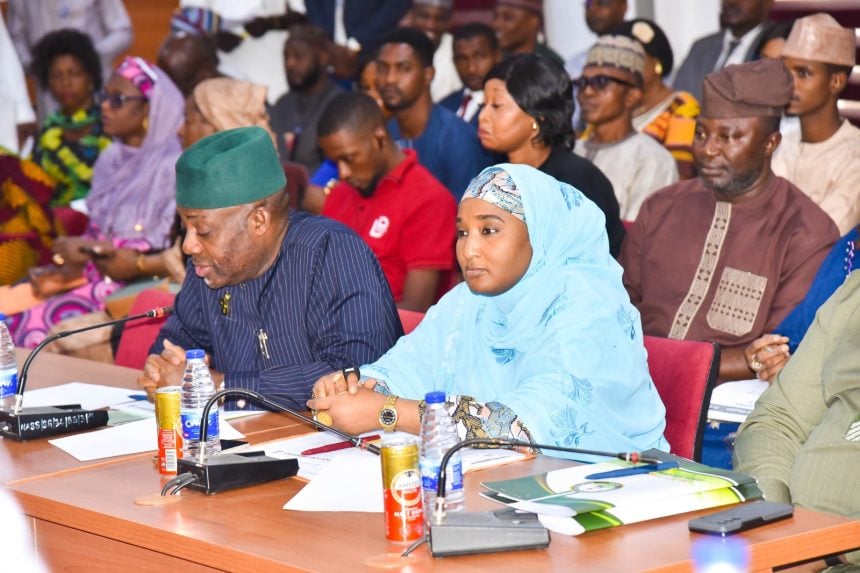In a decisive move that signals a new chapter for Nigeria’s electoral system, the Senate has officially confirmed Professor Joash Ojo Amupitan as the substantive Chairman of the Independent National Electoral Commission (INEC). His confirmation followed a rigorous screening session that underscored his vast experience, academic excellence, and legal expertise. The appointment comes at a crucial time when the nation’s electoral integrity and public confidence in the system are under heightened scrutiny.
Background: A New Era for INEC Leadership
Professor Joash Ojo Amupitan succeeds Professor Mahmood Yakubu, whose tenure as INEC Chairman spanned from 2015 to 2025. Under Yakubu’s leadership, Nigeria witnessed major electoral transitions and the introduction of technology-based voting reforms such as the Bimodal Voter Accreditation System (BVAS) and the INEC Result Viewing Portal (IReV). However, his era was also marked by controversies, post-election litigations, and demands for greater transparency.
The confirmation of Amupitan thus comes with renewed expectations for stability, reform, and public trust. His appointment by President Bola Ahmed Tinubu was viewed as part of a broader effort to reposition key national institutions and strengthen democratic governance.
Who is Professor Joash Ojo Amupitan?
Professor Joash Amupitan is a distinguished legal scholar and senior academic with a deep background in constitutional and administrative law. He previously served as Dean of the Faculty of Law at the University of Jos and has contributed extensively to legal education, public policy, and governance reforms in Nigeria. Known for his integrity and intellectual depth, Amupitan’s reputation extends beyond academia to national policy advisory roles, where he has been an advocate for electoral justice and democratic accountability.
He is also a member of several professional legal bodies, including the Nigerian Bar Association (NBA) and the International Association of Constitutional Law, reflecting his commitment to promoting the rule of law both locally and globally.
Senate Screening and Confirmation Process
The Senate’s confirmation session, presided over by Senate President Godswill Akpabio, was marked by bipartisan consensus and commendations for Amupitan’s qualifications. During the three-hour screening, lawmakers engaged him on critical issues such as voter registration reforms, election technology, and the independence of INEC.
Amupitan impressed the legislators with his articulate responses, promising to strengthen INEC’s institutional integrity and ensure fair, transparent, and credible elections. His performance earned unanimous approval, with senators describing him as “eminently qualified” and “a man of proven integrity.”
Following the deliberations, the Senate adopted a voice vote confirming his appointment without opposition, a rare occurrence in Nigeria’s legislative proceedings and a clear indicator of confidence in his leadership capabilities.
Amupitan’s Vision for INEC and Nigeria’s Electoral Future
During the screening, Professor Amupitan outlined his vision for Nigeria’s electoral future, anchored on three core pillars: transparency, technology, and trust.
He pledged to:
- Enhance technological integration in the electoral process to improve efficiency and credibility.
- Strengthen institutional independence by ensuring INEC operates free from political interference.
- Promote voter education and inclusion, particularly targeting women, youths, and persons with disabilities.
- Review and reform electoral logistics, to prevent challenges that marred previous elections, such as late arrival of materials and communication lapses.
- Restore public trust, by improving accountability and ensuring timely publication of election data and financial reports.
According to Amupitan, restoring public confidence is non-negotiable. He emphasized that democracy thrives only when citizens believe in the fairness of the process, promising to make transparency and integrity the bedrock of his administration.
Reactions Across the Nation
Reactions have poured in from across Nigeria’s political spectrum and civil society. Many stakeholders hailed the appointment as a positive step toward electoral reform, citing Amupitan’s academic and professional record as proof of his capability to deliver.
Civil Society Groups such as the Transition Monitoring Group (TMG) and Yiaga Africa expressed optimism, urging the new INEC Chairman to prioritize transparency and inclusivity.
Political analysts also noted that his background in law could help address complex electoral disputes and improve legal compliance during elections.
Meanwhile, some opposition voices cautioned that genuine reform will depend not just on leadership but on institutional support and political will from all arms of government.
Challenges Ahead for the New INEC Chairman
While the confirmation marks a major milestone, the task ahead for Professor Amupitan is formidable. He takes over at a time when INEC faces multiple challenges, including:
- Persistent allegations of election malpractice and vote buying.
- Infrastructural and logistical deficiencies.
- Increasing voter apathy and declining trust in electoral outcomes.
- The need for credible off-cycle elections across several states in 2026.
- Managing political pressure from diverse interest groups while maintaining INEC’s neutrality.
To succeed, Amupitan will need to build on past reforms while introducing fresh innovations that prioritize transparency, fairness, and efficiency in all electoral activities.
Public Expectations and the Road Ahead
Nigerians expect a reinvigorated INEC that can deliver on its constitutional mandate without compromise. The public is looking for a commission that can organize elections that truly reflect the will of the people. Analysts suggest that the success of Professor Amupitan’s tenure will largely depend on how effectively he handles upcoming elections and addresses systemic weaknesses that have long plagued Nigeria’s electoral framework.
Observers also anticipate that he will push for legislative collaboration to amend outdated electoral laws, strengthen the use of digital tools, and ensure that all electoral stakeholders—security agencies, political parties, and civil society—work cohesively to safeguard democracy.



